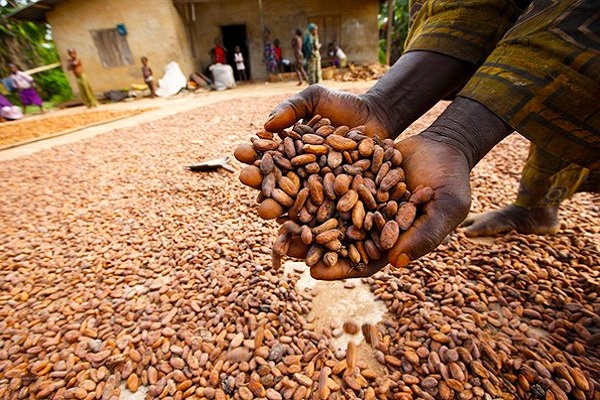News
Despite rising prices, cocoa farmers face challenges.

Ibekimi Oriamaja Reports
Track News reports, cocoa farmers are struggling to make a profit despite rising prices. Since October, cocoa prices have risen slightly but remained stable.
Cocoa has traded at $2,520 per metric tonne since the beginning of this year, according to Trading Economics, a research site. Following heavy rain in places like Ondo State, graded cocoa certified fit for export traded between $2,892 and $3,008 in September. Despite this, farmers took advantage of enough sunlight to dry the beans fairly well.
Last month, New York cocoa futures were $2,600 per tonne, while London cocoa futures were $1,857 ($2,264).
Dr Victor Iyama, President of the Federation of Agricultural Commodities Association of Nigeria (FACAN), explained that increased cocoa production does not always result in higher prices for local farmers, adding that the major chocolate producers determine how much they get at the end of the day despite the prices published on the various commodities exchanges.
In October of last year, the origin differential for Nigerian beans exported to the United States was reduced by 40%, from $407 to $244 per tonne.
Iyama also mentioned that there have been instances where international markets have been oversupplied, and that cocoa prices have come under pressure due to fluctuations in demand around the world.
In February of last year, ICCO noted that expectations of a production surplus, combined with low levels of demand, would drive down cocoa prices on the London and New York futures markets.
Despite a year-on-year increase in grindings, prices fell due to excess supply, according to Iyama.
There were fears that a lack of fertilizer would result in lower cocoa production in the subregion.
According to ICCO, a lack of fertilizer on cocoa farms will likely reduce cocoa bean crop quantity, quality, and size next year, while weather and disease are reducing cocoa production this year.
In Nigeria, Ivory Coast, and Ghana, which account for more than half of global output, there has been an increasing campaign to improve farmer pay. Lower cocoa prices, according to Iyama, exacerbate poverty. To avoid this, Nigeria, Ivory Coast, and Ghana implemented a $400 per tonne Living Income Differential (LID) to protect farmers from price drops and ensure a higher income for farmers.
-

 News5 days ago
News5 days agoAttack on nurse: Enugu Assembly moves to regulate activities of masquerades
-

 Politics6 days ago
Politics6 days agoAPC leader collapses and passes away in church on Friday
-

 News2 days ago
News2 days agoFake Reverend Sister Arrested With 38 Children
-

 Gist1 day ago
Gist1 day agoMy Boss Used To ‘KNACK’ My Wife After Sending Me On A Mission, To The Extent She Got… – Ex-soldier
-

 News6 days ago
News6 days agoLocal Content, Local Fraud
-

 News6 days ago
News6 days agoCourt awards N10m damages against EFCC for ‘unlawful’ publication against Christ Embassy Pastor Miebi Bribena and wife
-

 Politics5 days ago
Politics5 days agoMagnus Abe: my rift with Wike over
-

 Gist2 days ago
Gist2 days agoDrama As Married Man Dies After Sleeping With Another Married Woman




